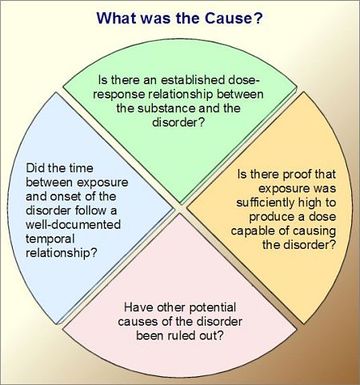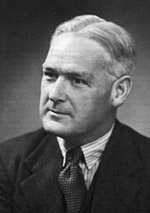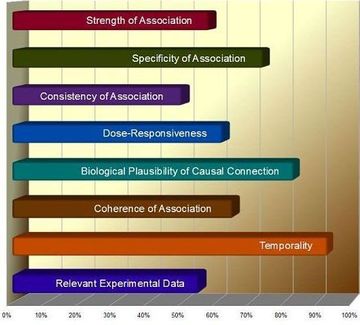William R. Sawyer, Ph.D., Toxicologist
- Diplomate, American Board of Forensic Medicine
- Diplomate, American Board of Forensic Examiners
|
| About Us
TCAS, LLC, provides a wide range of professional services including review of chemical, alcohol, pharmaceutical or radiological exposures within civil and criminal litigation matters. Dr. Sawyer has considerable expertise in matters pertaining to alcohol intoxication assessment, intentional poisoning homicides, occupational and community exposures to carcinogens, medical malpractice involving pharmaceuticals, pyrolysis products, heavy metals, organic chemicals, dioxins and drugs of abuse. Forensic toxicology and toxic exposure investigations include analytical protocol and referral of autopsy material for analyses. Environmental and occupational health risk assessments include site-specific assessments, dose measurement and causation determination. Final work products include scientific method references, method validation, forensic chain-of-custody and written reports. Reports and expert witness testimony have been provided to multiple clients in over 30 states.
|
| Please Note
We routinely work throughout North America from the Virgin Islands and the Bahamas to Alaska and have offices in the states of New York and Florida.
|
| Contact Us
Toxicology Consultants & Assessment Specialists, LLC
5851 North Road
Auburn, New York 13021
6450 Pine Avenue
Sanibel, Florida 33957
NY: 315-685-2345
FL: 239-472-2436
Toll free (U.S. & Canada):
800-308-0080
|
|
American Board of
Forensic Medicine
|
|
Issue No. 5
In this issue: Causation Evaluation in Toxicology
E-Newsletter Introduction and Invitation
Welcome to the latest edition in our new series of short, educational summaries of forensic toxicology matters taken from actual TCAS, LLC, cases over the past 25 years. Each case summary is factual; however, identifying case information has been removed unless revealed through jury verdict reports. Although interesting to read, the purpose of these case summaries is to show how the application of toxicological principles can be used in forensic matters. On occasion, we will also be releasing summaries on new toxicological studies and regulations.
TCAS, LLC, is sending this newsletter to all our past and present clients with the hope that it is of value in their professional endeavors.
In the event you have an interesting case you would like to discuss, please feel free to call or email us for a prompt, confidential teleconference.
Sincerely,
Dr. Sawyer
|
|
Principles of Toxicological Causation
In this article we explore the concept of causation. In the toxicological world, causation is defined as the action of causing or producing an effect as a result of ingestion, inhalation, dermal absorption or other exposure routes to a toxic substance. This may sound simple, but establishing a toxicological determination of causation involves a complex and painstaking process of investigation, as well as application of generally-recognized scientific, forensic and deductive principles. Causation Evaluation in Toxicology Toxicological causation analyses require a thorough investigation and review of all available data including medical records, police reports, relevant deposition transcripts, generally-accepted toxicological studies and, in some cases, review or inspection of the exposure or accident scene. For the expert toxicologist, causation determines whether or not a suspected adverse health effect is truly caused by an exposure, dose and duration. Causation determination also measures the potential for impairment or death stemming from the use of pharmaceuticals, drugs-of-abuse or alcohol. Toxicologists are charged with the responsibility of examining scientific information and objective evidence. The expert toxicologist must base his judgments on sound methodologies covering a wide range of substances. The methodology, evidence and results must be presented by the expert in an unbiased, scientifically-sound and objective manner. It is also incumbent upon the expert toxicologist to present his findings clearly and succinctly to the court, jurors and (in some cases) the news media or other lay persons.  | | A toxicological causation determination must satisfy multiple investigative criteria. |
It is important to note that causation may or may not be established in an investigative assessment. There is no guarantee of a conclusive outcome. It has been our experience, however, that direct on-site investigation, exposure reconstruction supported by laboratory analyses, dose calculations and disciplined, thorough review of available (world-wide) toxicological studies in the peer-reviewed scientific literature, will frequently lead to toxicologically-reasonable conclusions.
Types of Causation
There are two types of causation which an expert toxicologist may be required to assess: (1) general causation and (2) specific causation.
General Causation
General causation is a methodology which determines whether or not exposure to a substance or agent is capable of producing an adverse health effect. Typically, this requires supporting evidence in the form of peer-reviewed scientific literature identifying dose-response relationships and/or epidemiological studies describing medical conditions associated with the exposure in question. The evidence demonstrating that the exposure (chemical, drug, consumer product, etc.) is capable of causing the health effect must be reliable and recognized within the generally-accepted body of scientific and/or toxicological literature.
Specific Causation
Specific causation is a methodology which determines whether or not exposure to a substance or agent did, in fact, cause the specific adverse health effect at issue. There are significant differences in distinguishing specific causation from general causation. For example, it is possible that an exposure can be demonstrated to be capable of causing an adverse health effect, but this alone does not mean that it did, in fact, cause the effect. Thus, specific causation carries a much stricter set of determination requirements and proving specific causation requires a much greater weight of supporting evidence.
Causation and Weight-of-Evidence
A determination of causation is the result of following a detailed set of procedures supported by generally-accepted methodologies. Application of a weight-of-evidence ("WOE") methodology relies in part on the list of guidelines developed by Sir Austin Bradford Hill for inferring general causation.1
Such an approach requires review of several types of evidence relating to the effects of exposure. These types of evidence (or "modalities") include human epidemiological studies, case reports, reviews, studies assessing the commonalities between a group of epidemiological studies and studies of the exposure on animals. 2Sir Austin Bradford Hill (1897-1991) and Sir Richard Doll (1912-2005) pioneered the concept of case-control studies. Subsequently, Hill and Doll were the first to apply a scientific methodology to demonstrate the causal connection between cigarette smoking and lung cancer.3 Hill subsequently formalized his approach to determining causation and published a groundbreaking paper in 1965.4 Today, Bradford Hill's criteria for establishing causation (the "Hill Factors") sets the toxicological standard for defining a causal relationship between an event and a consequence.  | Sir Austin Bradford Hill
(1897-1991) |
In a toxicological causation assessment, the Bradford Hill causation criteria (the "Hill Factors") are important components in compiling weight-of-evidence. Additionally, the expert toxicologist may apply a wide variety of experimental data showing the biological mechanisms through which a substance can or may create adverse health effects with respect to the metabolic pathways of the substance in animals and humans. These and other generally-accepted methods all contribute to a scientifically-sound causation determination.
A weight-of-evidence approach should also include review of any available information regarding structure of the chemical at issue, as well as the similarity of its structure to chemicals already known to cause certain health effects in humans. Dr. Sheldon Krimsky, author of "The Weight of Scientific Evidence in Policy and Law," stated:
"Each type of study may provide some evidence, but each has its limitations." "If a chemical were known to be one of the causal agents responsible for a human disease, then we would expect a series of evidentiary pathways to converge on that conclusion. But, not all of the evidence may be consistent with the result."5
The Hill factors establish a broad framework to help evaluate the various modalities of evidence relevant to the general causation question. Causative modality factors include (but are not limited to) consideration of:
- Strength of association between the exposure and a particular health effect
- Specificity of the association
- Consistency of the association
- Dose-responsiveness of the chemical
- Biological plausibility of the causal connection
- Coherence of the association
- Temporality (time relationships)
- Any relevant experimental data (typically animal studies)
In addition, modalities beyond the Hill factors should be considered. For example, the National Research Council states that "the committee must rely on a combination of evidence from different sources to reach any conclusion in accordance with its mandate to estimate health effects associated with hazardous wastes." 6
 | | Example of "Hill Factor" Weighting of Causative Evidence |
In assessing chemical causation, as many of the Hill factors should be applied as possible. However, it is not uncommon for there to be little or no information available for one or more factors. Thus, application of Hill factors to a particular causal hypothesis (and the relative weight to assign to each) is both substance-dependent and subject to the independent judgment of the expert toxicologist reviewing the available body of data. "For example, some WOE approaches give higher weight to mechanistic information over epidemiological data." 7
In view of Professor Hill's epidemiological background, it is not surprising that several of his factors focus on consideration of epidemiological evidence. However, such evidence addresses only one aspect among the several modalities of evidence that should be considered in assessing causation.
"The term WOE has come to mean not only a determination of the statistical and explanatory power of any individual study (or the combined power of all the studies) but the extent to which different types of studies converge on the hypothesis."8
Standards of Admissibility
The expert toxicologist's testimony must be responsive to answering the questions at issue and rest on a sound, reliable scientific foundation (Rule 702, Federal Rules of Evidence).4
In particular, toxicological testimony cannot be considered admissible if the evidence is based upon a "novel" scientific technique or methodology. Expert testimony must have its basis in reliable scientific techniques which are generally accepted by the relevant scientific community. Thus, although personal observations and professional experience may play a role in formulating an opinion, they do not in themselves constitute an admissible basis for a conclusion. The expert toxicologist must pragmatically assess the list of contributing factors, weigh them accordingly and communicate findings in a scientifically-sound and objective manner.
Accordingly, causation cannot be based solely on professional judgment that is difficult to trace to a well-established scientific methodology. It cannot be vague, formulaic or ignore the complexity and case-specificity of scientific interpretation. Causation is the outcome of a generally-accepted path which often includes statistics. However, a causative conclusion cannot be reached solely through statistics or extrapolation of numbers. For example, so-called "evidence-based medicine" has not achieved general acceptance in causation due to its very nature which reduces the role of expert judgment in favor of data compiled in computer programs.
Summary
In causation, the expert toxicologist proceeds in the direction in which the evidence leads. The goal of any toxicological analysis of causation is to establish the true cause to within reasonable toxicological certainty. Since toxicological expert testimony has the potential to significantly impact the outcome of a case, accurate compilation of evidence, thorough collation of Hill factors and conscientious application of the weight-of-evidence are all central to an accurate toxicological causation evaluation.
Notes and References
- Hill, A.B., The Environment and Disease: Association or Causation?, 1965, Proceedings of the Royal Society of Medicine, Vol. 58(5), pages 295-300.
- National Research Council, Environmental Epidemiology: Public Health and Hazardous Wastes, 1991, Washington, D.C., The National Academies Press, Vol. 1.
- Doll, R. and Hill, AB, Smoking and carcinoma of the lung. Preliminary report, 1950, British Medical Journal, pages 739-748.
- Hill, A.B., The Environment and Disease: Association or Causation?, 1965, Proceedings of the Royal Society of Medicine, Vol. 58(5), pages 295-300.
- Sheldon Krimsky, Ph.D., The Weight of Scientific Evidence in Policy and Law, 1995, American Journal of Public Health, No. S1
- National Research Council, "Environmental Epidemiology: Public Health and Hazardous Wastes," 1991, Washington, D.C., The National Academies Press, Vol. 1.
- Sheldon Krimsky, Ph.D., The Weight of Scientific Evidence in Policy and Law, 1995, American Journal of Public Health, No. S1
- Federal Rules of Evidence, Rule 702. Testimony by Expert Witnesses.
|
Meet the Firm
 Dr. William Sawyer Dr. William Sawyer is a professional toxicologist with a doctorate in toxicology from Indiana University School of Medicine. He is a diplomate of the American Board of Forensic Medicine and has more than 25 years of extensive experience in public health and forensic toxicology with specialized expertise in causation analyses (for plaintiff and defense) involving alcohol, drugs-of-abuse, pharmaceuticals, herbal products, dioxins, solvents, heavy metals, crude oil, radionuclides/NORM and other substances. Dr. Sawyer has testified at trial and/or deposition in more than 30 states including NY, MA, CT, PA, RI, NH, DE, NJ, WV, VA, NC, SC, GA, FL, AL, MS, LA, AR, MO, KY, IN, IL, WI, MI, OH, MN, MT, WA, CA, TX and OK.
As a skilled scientist and communicator in the area of toxic tort, Dr. Sawyer provides services to governmental agencies, corporations and select plaintiffs or defendants. Dr. Sawyer currently serves as the Chief Toxicologist for TCAS, LLC, and also has been an Assistant Professor (adjunct) for 23 years with the Department of Medicine, Upstate Medical University, Syracuse, New York. Dr. Sawyer has approximately 14 years experience as a licensed clinical and environmental laboratory director in several states.
Dr. Sawyer is a distance swimmer for the Gulf Coast Swim Team and recently completed the "Swim Around Key West" race in just over six hours. He is also a triathlete with the distinction of being a four-time Ironman. He loves to fish and SCUBA dive in northern New York State and the Gulf of Mexico.
 Jennifer Clark Jennifer Clark (Jen) began working with Dr. Sawyer in 2007 after spending the previous 18 years as a full-time mom. With a background as a legal assistant prior to the birth of her two daughters, Jen spends a considerable amount of her time performing research for active TCAS, LLC, cases. Not only does she have a special ability to ferret out information, she also has excellent grammatical skills which she applies to communications and report preparation. Jen loves a challenge and the fact that no two days at TCAS, LLC, are the same!
When not being an honorary toxicology investigator, Jen enjoys gardening, camping, reading and solving jigsaw puzzles. She is also a huge fan of the Adirondack Mountains of upstate New York and spends several weeks each summer exploring the woods and lakes with her husband, Jim, and golden retriever, Gracie.
 Carol Sawyer Carol Sawyer serves as the bookkeeper for TCAS, LLC. By training, she is a dental hygienist and graduate from Indiana University School of Dentistry. She also has prior training and work experience in an accounting firm as a file room clerk and has managed TCAS, LLC's records since its inception in 1989. Carol enjoys preparing specialty foods, volunteering in her church and community, visiting barrier island beaches, reading and just being outdoors.
Support Staff |
|